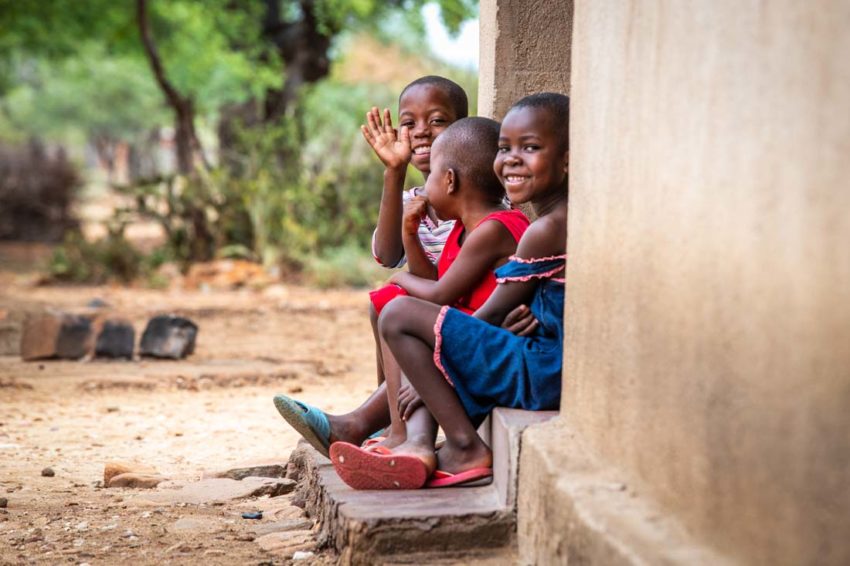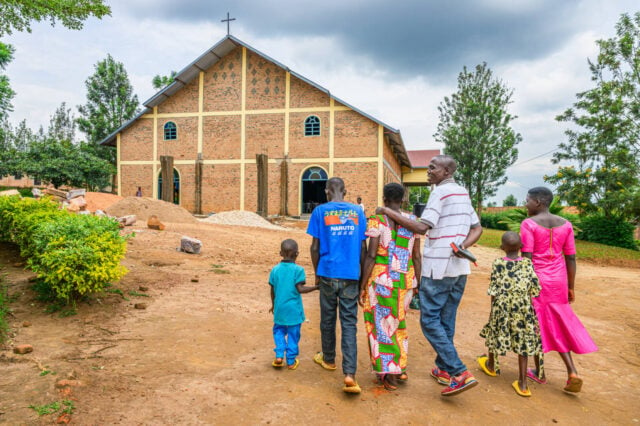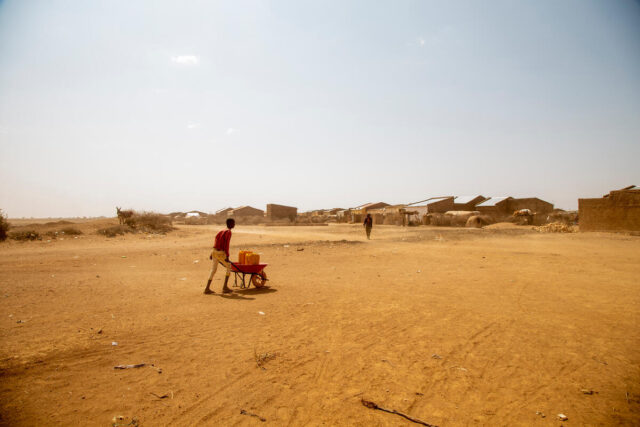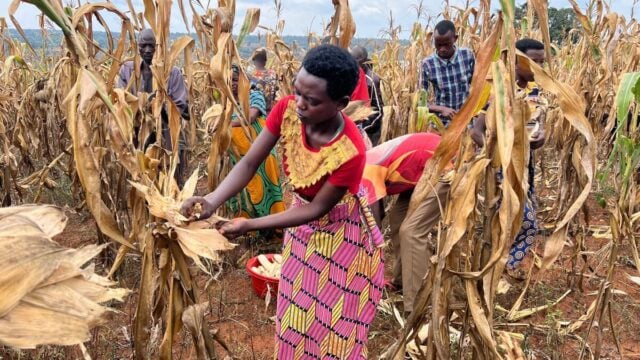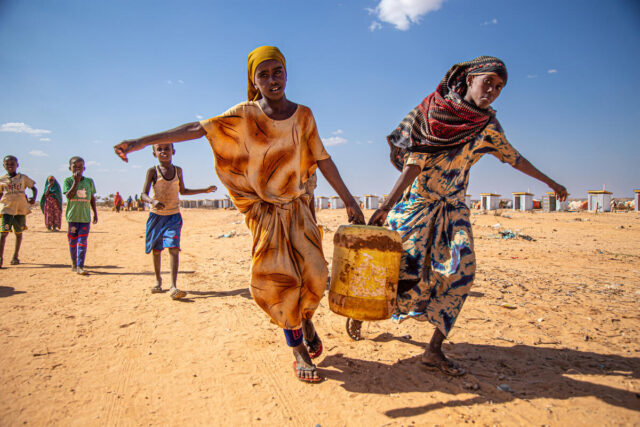Through another year of ups and downs, God’s faithfulness and miraculous activity in the world haven’t stopped. While progress on ending extreme poverty and boosting development slowed because of the pandemic and its impacts, God’s people always have reasons to hope — lots of them. We can trust that our sovereign God is still tending to His children and His creation. Discover 12 reasons to have hope in 2022 and ways we can pray for God’s continued providence.
Rejoice always, pray continually, give thanks in all circumstances; for this is God’s will for you in Christ Jesus.—1 Thessalonians 5:16–18 (NIV)
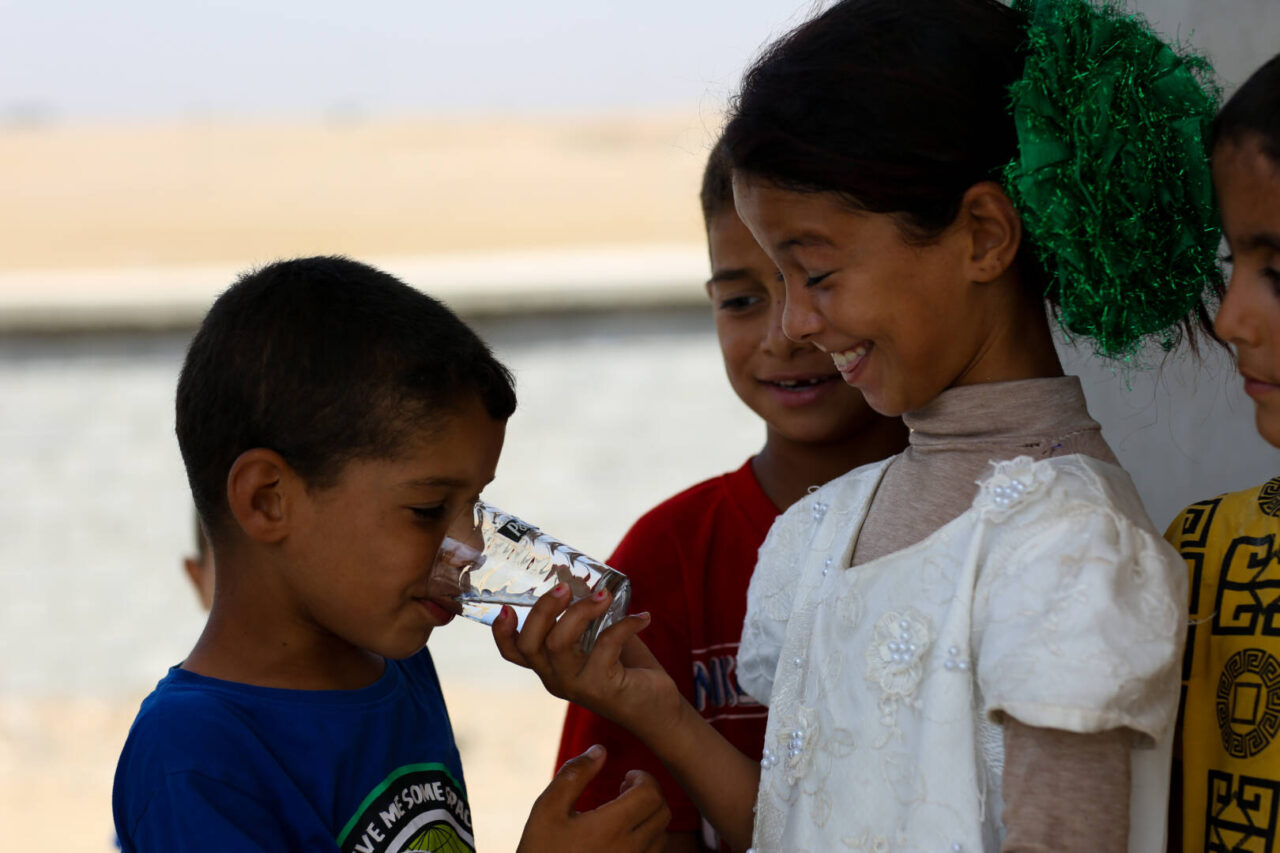
1. More young children are surviving thanks to clean water.
For years, the number of children who died daily from poor water, sanitation, and hygiene was nearly 1,000. Now, it’s dropped to over 800 a day. And the number of people lacking access to clean water worldwide decreased from 1.1 billion in 2000 to 771 million in 2020. While these numbers are still heartbreakingly high, their decrease represents such important progress in the fight against the global water crisis.
And during the annual Global 6K for Water, tens of thousands of people walked, ran, or rolled for clean water so kids like Ireen in Malawi wouldn’t have to anymore. When drillers hit water in her village in August 2020, life changed. Now, with clean water just steps away from her home, Ireen and kids like her have a better chance of continuing their education and staying healthy.
Provider of all, we praise You for this progress. Please refresh the hope of so many more like Ireen and her community with clean water. You are the One who provides water from the rock and streams in the wilderness. Work through Your people to continue these efforts.
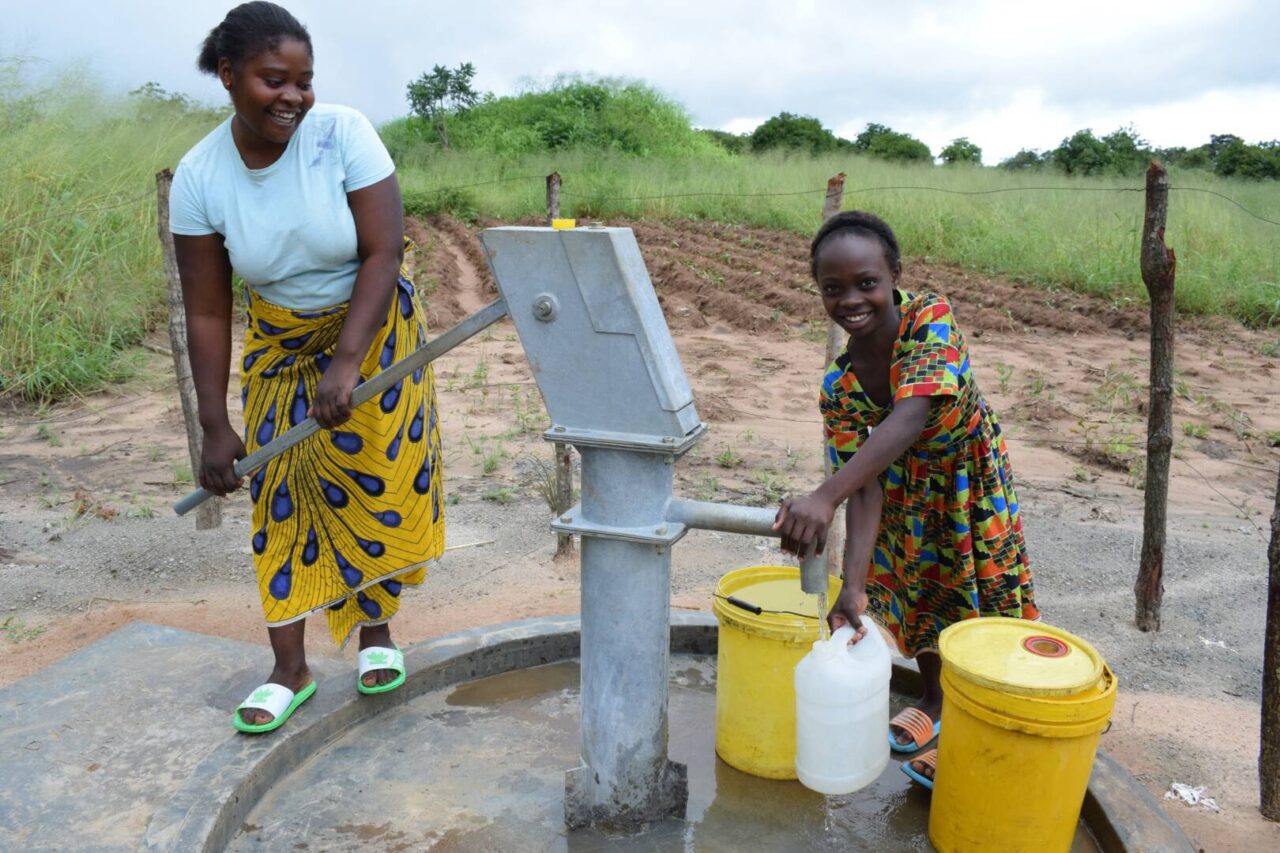
2. Loveness Phiri became the 20 millionth person reached with clean water through World Vision’s work.
In even more hopeful water news, a global pandemic couldn’t stop the clean water warriors: Thanks to partners and donors, in February, the 20 millionth person was equipped with clean water through our work. And it’s only the beginning of a God-sized goal of empowering everyone, everywhere we work with clean water by 2030 — around 50 million people! That goal is furthered by completed funding for the Finish the Job in Rwanda campaign to equip all of our project areas in Rwanda with clean water as well.
Who was this 20 millionth person? Loveness Phiri, a Zambian mom. With access to clean water, Loveness will no longer have to wake up at 4 a.m. to walk the long distance to get dirty water for her family. With the hours in her day back, she’s started a business selling food. “I am now a businesswoman, thanks to World Vision. Our lives will never be the same because of the borehole they have provided for us,” she says.
God of mercy, we thank You for this success and the way You’ve used it to bless and transform millions of people’s futures.
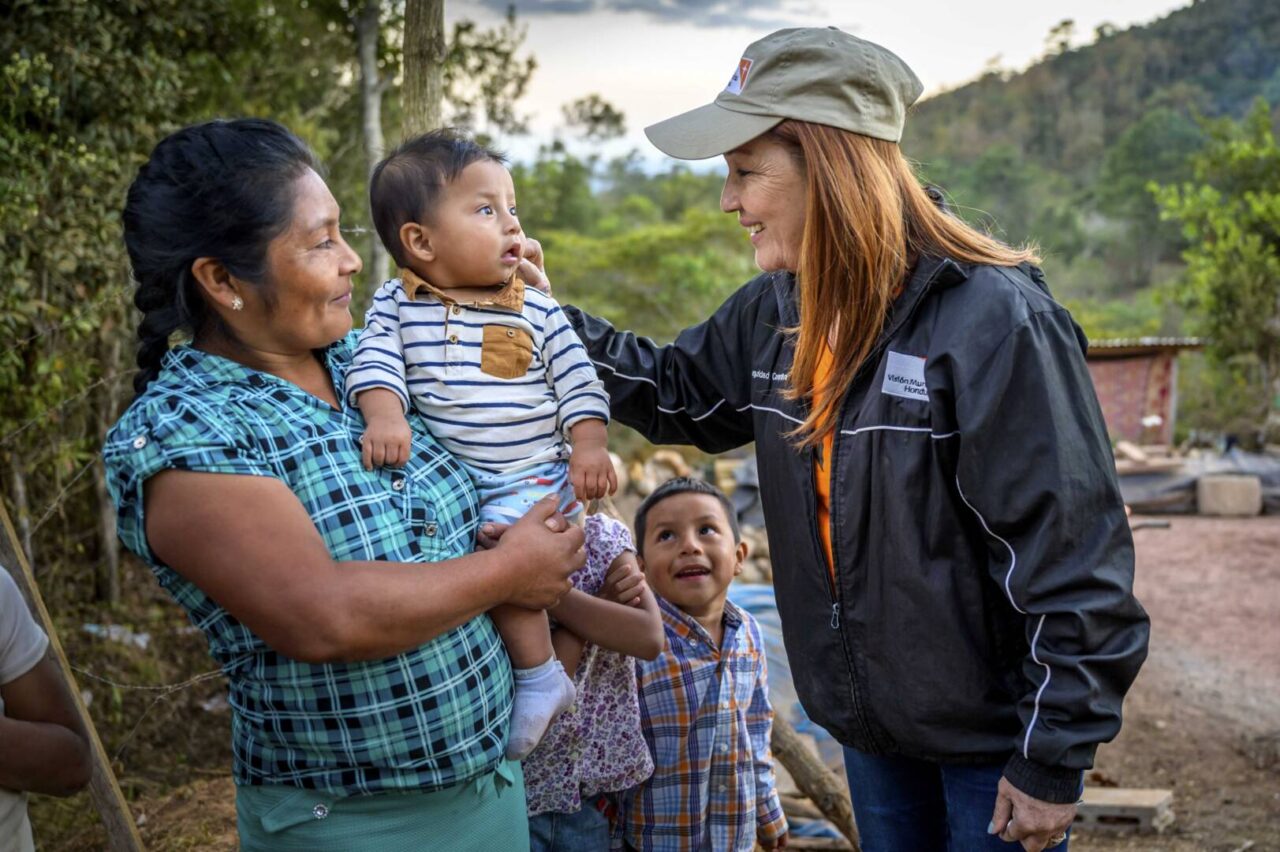
3. The people of Yamaranguila, Honduras, are filled with hope for their futures.
Since the mid-1990s, World Vision has worked through child sponsorship to equip people to build better lives in Yamaranguila municipality, which encompasses more than 60 communities and has the highest concentration of Lenca people in Honduras. About 100,000 strong, the Lenca are the country’s largest Indigenous group; they’ve long experienced discrimination and challenges like entrenched poverty, lack of education, and more.
Child sponsorship and other World Vision programs have supported social, physical, and spiritual renewal throughout Yamaranguila. Thanks to the partnership of donors and families, children and adults are being empowered to build up their community. Poverty is on the run as a world of hope opens up.
God of new beginnings, we give You glory for the transformation in Yamaranguila and we celebrate the renewed hope that children and families here have. Please continue to bless their flourishing.
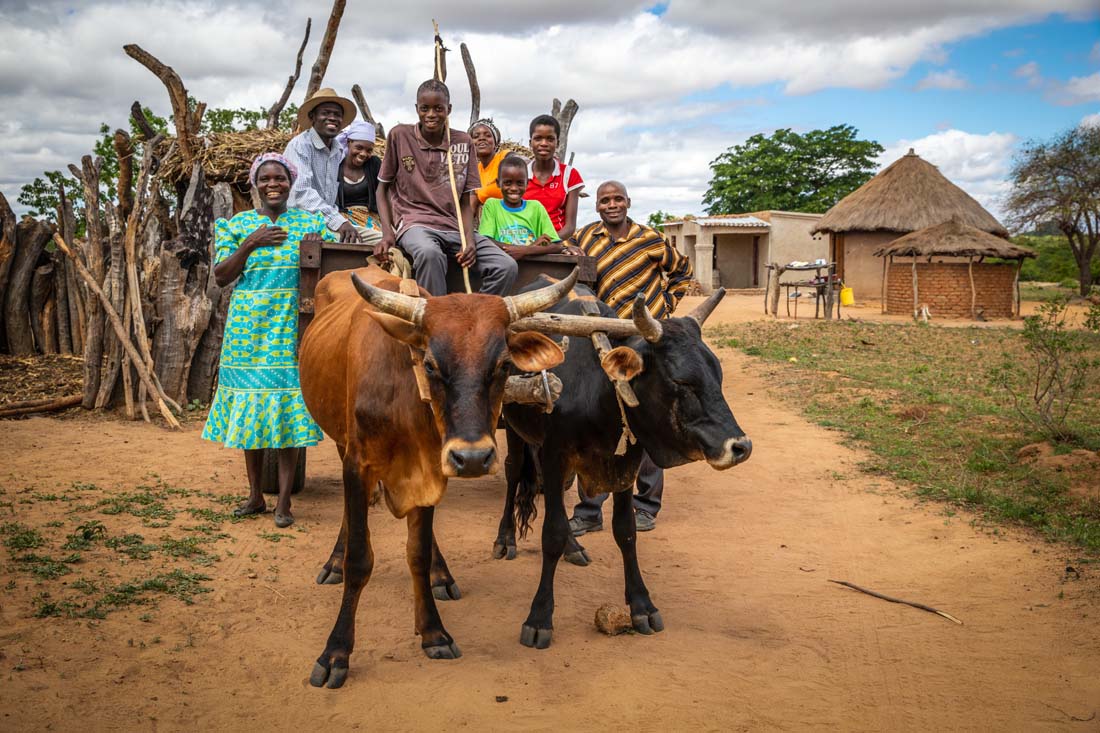
4. USAID is helping empower Zimbabwean families to move from fragility to resilience and build food security.
Over seven years, the ENSURE program — Enhancing Nutrition, Stepping Up Resilience and Enterprise — has equipped over 215,000 people in eastern Zimbabwe to improve their lives. Farmers have better crops. People are raising more livestock. Families are equipped with sanitation facilities and through hygiene behavior-change programming. Parents have income to buy food and send their kids to school. Children are healthier and have a stronger future ahead of them — one that involves completing school instead of dropping out to get married or work. It’s a future that dares them to dream of the possibilities and hope for a life full of choices beyond the poverty many of them have only known.
Gracious Father, be present with these families as they celebrate their progress, and guide those in our government responsible for foreign assistance with wisdom to make choices that support vital global development.
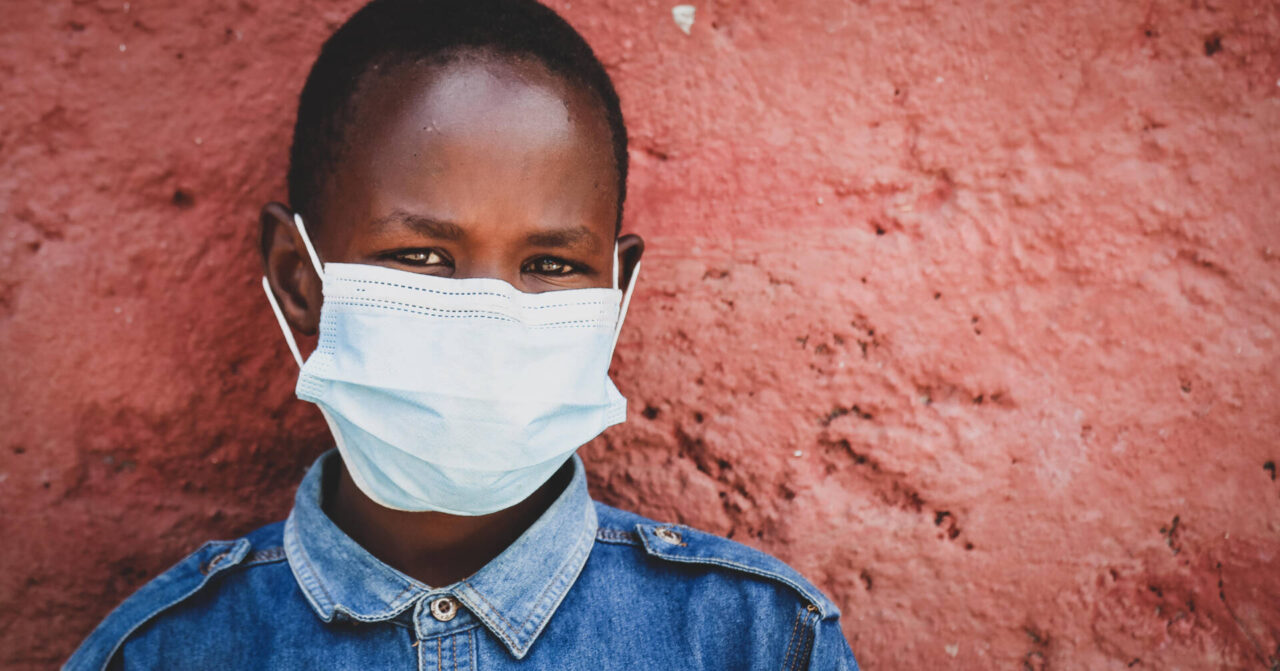
5. Collins, one of the first kids to choose his own sponsor in 2019, feels the support of sponsorship during the COVID-19 pandemic’s ongoing hardships.
When World Vision flipped the script on child sponsorship in 2019 with Chosen, Collins in Mwala, Kenya, picked Joel from Chicago as his sponsor. Because of the community-focused model of child sponsorship, Collins and his friends have a stronger support network to get them through the hard times caused by COVID-19.
And despite the pandemic, kids can still choose their sponsors! At smaller events in countries like Malawi, Kenya, and Ghana, children are getting the power to choose.
Good Shepherd, please watch over sponsored kids like Collins and their families as they face ongoing trials from the effects of the pandemic. Give us words of encouragement and a heart to care for people in need.
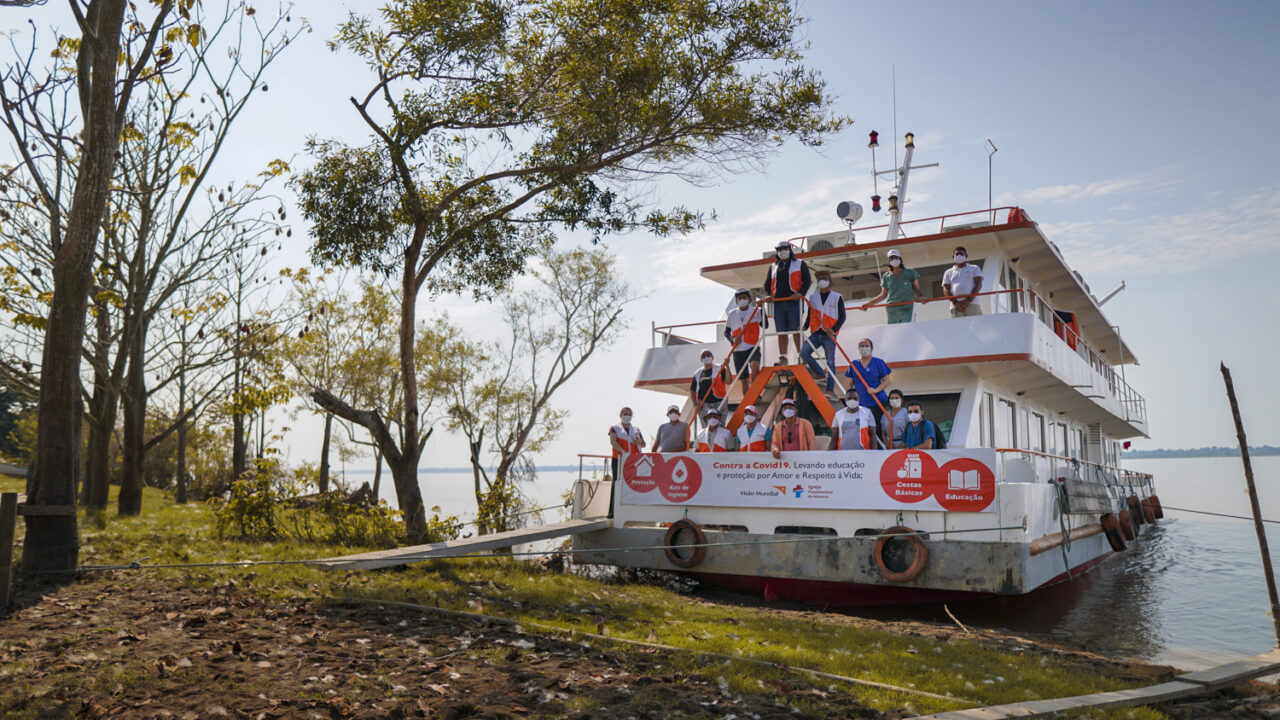
6. People in some of the world’s remotest areas are getting support to deal with the pandemic.
When COVID-19 hit, World Vision launched our biggest ever global response to a crisis, and by October 2021 we’d reached over 72 million people with relief. In just one example, the Solidarity ship is reaching remote families along the Amazon River with medical care and health knowledge to keep people safer from COVID-19. Though for many in the Western world, the pandemic may be inching toward the rearview mirror, for most of the children and families we serve around the world, it’s far from over. That’s why we’re still committed to making sure people around the world are receiving food baskets that feed a family for a month, personal protective equipment kits for frontline workers in under-resourced areas, and more.
Sovereign Lord, may Your hand of protection cover people who live in remote areas far from medical care. May vulnerable families know Your loving remembrance of them as they receive tangible help and support.
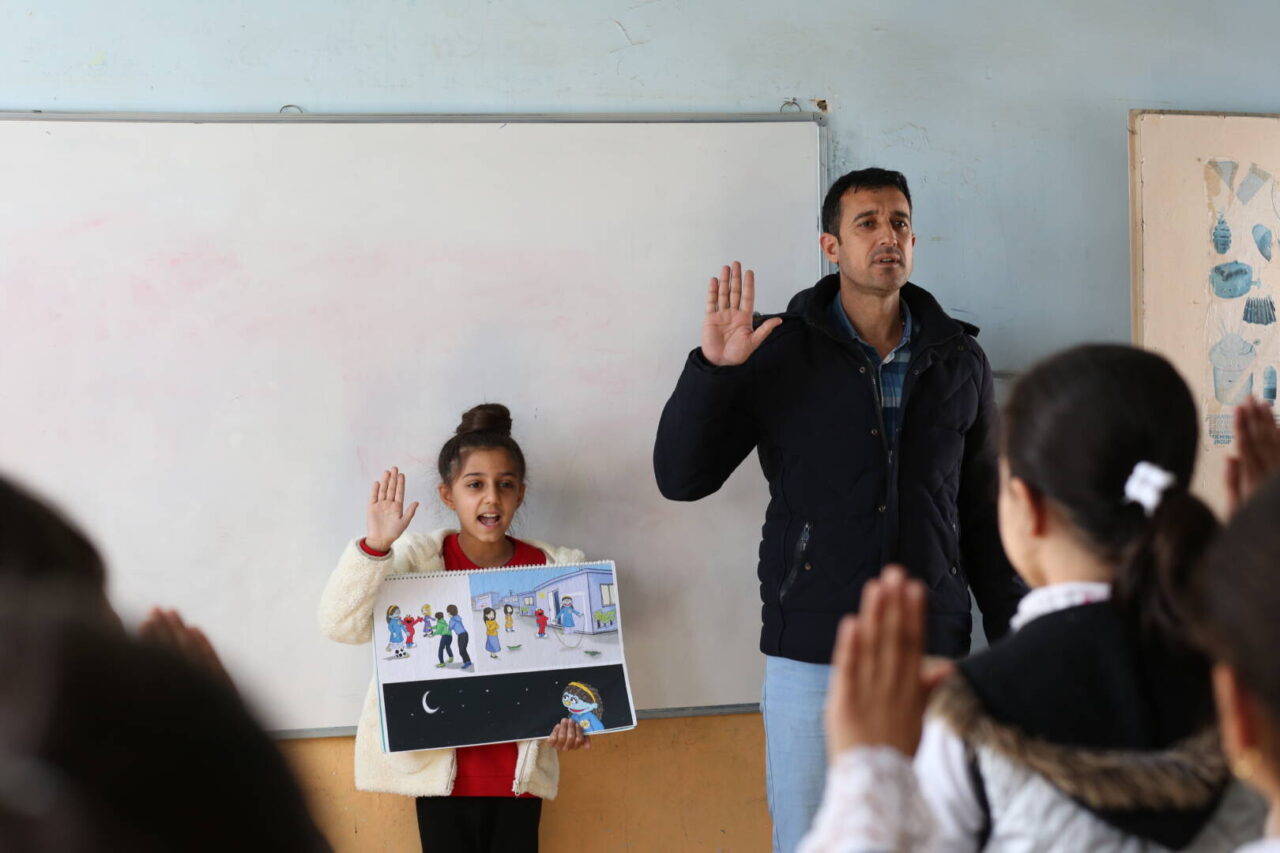
7. The WASH UP! partnership with Sesame Workshop is reaching vulnerable kids with hygiene behavior-change education.
What better way to get kids excited about washing their hands than with Muppets? Raya, a special Muppet for Sesame’s global educational programs, shows children good handwashing and hygiene practices through games and songs. In harder-to-reach areas, like villages in Iraq, this kind of play-based learning is vital to keeping kids healthy during the continuing impacts of the pandemic.
In Zummar, students at an elementary school sing health-focused songs that encourage them to stay healthy: “I am the superstar for water and hygiene; I promise to drink, drink, drink only safe water.”
Jesus, we ask for Your protection over vulnerable kids and families during this pandemic, and we praise You for the creativity that engages kids’ minds.
8. Shemema is using her powerful voice to speak out against child marriage.
Ten-year-old Shemema wrote this spoken word poem herself to encourage her peers, in Ghana and around the world, to say no to child marriage. Watch as she eloquently articulates the brighter future she’s pursuing thanks to her education. Strong, empowered girls like Shemema have huge potential to challenge harmful cultural traditions like child marriage and help transform their societies.
You can raise your own voice for change on behalf of girls everywhere with our Just Married campaign that’s working to fight child marriage at a policy level.
Loving Father, please empower and raise up more young leaders like Shemema who can turn the tide on practices that harm your beloved daughters. Keep girls who are at risk of child marriage safe, and prompt your people to address this issue so girls everywhere can thrive.
9. Globally, as many as 35% more moms and 58% more kids under 5 are surviving than they were 30 years ago.
Worldwide agencies like the United Nations and World Vision stepped up their collaborations in 1990, when global maternal and child mortality rates were staggeringly high. Thirty years later, the efforts have saved millions of lives. While it’s true that the pandemic is impacting immediate progress toward the Sustainable Development Goals, the long view shows us that this kind of progress can carry us forward. With better nutrition; access to quality healthcare, education, and clean water; and other programs, moms and their babies can get a healthier start and find more reasons to hope.
Mighty Healer, bless the world’s efforts to lift up the most vulnerable people, and may our care for others come from our love for You.
10. Child sponsorship is helping entire communities flourish.
Did you know that, because of our community-focused solutions, for every child helped, four more children benefit, too? This sweet video from our programs shows you what that means for sponsored kids like Farah and her friends. Sponsorship is helping their community stand tall, free from poverty.
Our King, stir even more of your people to seek flourishing for the world’s most vulnerable people.
11. Across the United States, communities are getting the resources they need to fight poverty.
Our goal is to care for vulnerable children in any situation, even those right here in the U.S. In 2021, World Vision’s U.S. programs reached over 12 million people — including 6.9 million children and youth — with resources and support ranging from backpacks to hygiene supplies. In the Navajo Nation, World Vision has been providing support through COVID-19 surges throughout 2021. Myron Lizer, the Navajo Nation’s vice president, says to World Vision donors, “You sent us a love message by living out your biblical principles to love your neighbor — we are grateful.”
Creator, thank You for moving in the hearts of Your people to love and care for their neighbors in the U.S. May we remember the needs of our brothers and sisters around us.
12. World Vision’s advocacy work is making a difference on Capitol Hill and around the world.
Advocacy efforts with the U.S. government for foreign aid and commitments are a vital piece of ending injustice for vulnerable people around the world. This year, staff and a mighty team of Volunteer Advocates engaged members of Congress to support funding and legislation to protect vulnerable children from violence and exploitation, keep girls in school, protect women and girls in emergencies, fight malnutrition, and end child marriage. These examples of hope move the needle closer to passing bills that support more of the work World Vision’s already doing around the world.
Our Just Judge, give our leaders wisdom and a heart for people in need around the world. May Your kingdom come, on earth as it is in heaven.
